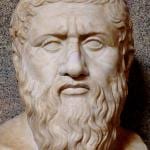
We have been hearing lots of commentary about how Donald Trump, election fraud, the accusations of election fraud, the Capitol riots, the Democrats, the Republicans, and other developments from both sides of the political spectrum are endangering democracy.
Is democracy–or, more precisely, our constitutional representative republic–really in danger?
I would say, yes. Maybe democracies, which historically tend to be fragile and short-lived, are always in danger. They always therefore need to be bolstered, and we have not been doing much bolstering lately.
The assault on the Capitol by conservatives, no less, was full of ghastly symbolism, such as when the rioters tore down the American flag and put up in its place a Donald Trump flag. Some people apparently have more loyalty to Trump than they do to their country. Turning the presidency into a cult of personality is always detrimental to democracy. And when people who supposedly believe in law and order start fighting with the police–to the point of killing a police officer–the contradiction to their own political ideology is devastating.
And when the President of the United States tells his supporters to march on the Capitol, we have the head of the Executive branch of our government directing an assault on the Legislative branch. And when the head of the Executive Branch did so in an attempt to stay in office by preventing the Legislative branch from ratifying the results of an election as certified by the states, we have a Constitutional crisis of the highest order.
But the system held. The Constitution prevailed.
President Trump perhaps didn’t intend or realize the implications of what he, in fact, did. Of the rioters, we are only talking about 500 people. Some of his supporters at the rally–not all of them–got caught up in a mob psychology, which notoriously effaces individual judgment and rational behavior. So we should not necessarily generalize the debacle at the Capitol too much. That debacle did not destroy our democracy.
But it demonstrates a mindset that seems to be growing–from both sides–that does threaten our Constitutional system. Americans are not as committed to it as they used to be. Not even conservatives, with some of their scholars writing books critiquing it, and some of their activists willing to throw out Constitutional niceties to advance their cause.
I don’t think we can sustain democracy for long when citizens on the losing side of an election do not acknowledge the legitimacy of the winner. Many Democrats rejected the legitimacy of Donald Trump’s victory in 2016, launching into a “resistance” mode and trying to oust him throughout his term. Now Republicans are denying the legitimacy of Joe Biden’s victory. Whether or not they have good reasons to do so, when not just one aggrieved party but both sides routinely reject the authority of officials whom they did not vote for, democracy is in trouble.
And, in our postmodern times when truth and even facts are relative, subject to interpretative paradigms that can be constructed or deconstructed at will, we cannot even agree on which candidate got the most votes. How can democracy exist in a climate of such skepticism?
If there was election fraud, that, of course, undermines democracy. If there wasn’t, but so many people believe there was, that also undermines democracy.
We seem to have given up the “consent of the governed,” our social compact, which is necessary for any democracy to work.
I worry about our divisions, and I also worry about the unity that might be imposed in reaction. We will now have a One Party government. I hear sentiments to get rid of the Constitutional checks and balances that are designed to manage and limit the bad effects of our divisions. For example, if the Democrats decide to extend their power by giving themselves a majority on the Supreme Court. I am also hearing sentiments that would dispense with the protections of the Bill of Rights, not only with gun rights but with religious liberty. Some are saying that the Constitution is obsolete, the product of a racist past that needs to be changed.
What might it be changed into? Or what might a non-democratic, non-Constitutional American government look like? Probably China, an authoritarian system that allows for big corporations and individual prosperity, all under state control. That seems to be the model government of the future, or the near present.
But I think our democracy can be saved. Election reform would help, developing consistent and transparent processes across all of the states. So would studying Federalist No. 10 to remind ourselves how we can manage all of our differences and our factions. We have a legacy of “Americanism” that could be revived, one which immigrants from all over the world used to embrace and treasure when they came here. When bad things happen–wars, terrorist attacks, disasters–Americans tend to rally together. Perhaps we could let 2020 and the first month of 2021 serve that purpose.
I’m thinking that our exhaustion and frustrations can be channeled not just into an opposite extreme but to a more modest view of government in general, limiting it so that it does not take up such a big part of our lives and our attention. I envision a country whose leaders are chosen not so much for their personality or even for their ideology but for simply being good administrators and managers who can effectively handle the problems that come up. In this utopia, it wouldn’t really matter that much who holds the office at a particular point of time.
I know, I know, we have too many problems that need to be addressed, and a political culture that needs to be changed, which in itself takes political action. But through all of this we need the “eternal vigilance” to bolster democracy.
Any ideas how this could be done?
Illustration by Rutha Copley via pixy.org, CC0, Public Domain














